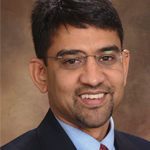Next, the inventor will need to become familiar with the basics of several diverse aspects of business development and commercialization. This includes developing a team, prototyping, going through the full patent process, raising capital, marketing, and fulfilling FDA submission requirements.
Explore This Issue
September 2018Academicians will find mentorship and support in their institutional licensing offices, and often their translational science departments and programs. Private physicians can receive mentorship from government-sponsored startup incubator programs, rotary clubs, and other successful entrepreneurs.
Inventors will soon learn that they do not possess the aggregate expertise required to develop a new invention and will need to inspire others to join their team: This includes executive officers, design and prototyping engineers, finance executives, marketing and sales managers, FDA consultants, manufacturing engineers, and others, depending on the invention. Team development will require the parting of a large portion of ownership rights to any invention. Another important foundational component is seed money to support the initial development. Private otolaryngologists typically raise initial money from friends and family and, if lucky, angel investors, often met at innovation conventions. Academic otolaryngologists often fund initial inventions through grants. Grants that have an end-invention clearly defined and a development pathway described are increasingly preferred over classic grants for the development of new basic science.
If an inventor can get through the early years of the development process, then they still must complete on average of seven years of work to obtain an approval from the FDA for a new medical device/therapeutic. At this point, however, many of the early naysayers reclassify themselves as ardent supporters, and avenues of financial and development support will increase. With continued diligence, passion, hard work, and luck, the inventor will hopefully become successful in implementing their new technology for the betterment of our field.
While the risks for failure are great, and the rewards often take several years, if not decades, to achieve fruition, it is these endeavors that often have the greatest impact on humanity and are most often recounted in the history of medicine. Otolaryngologists must embrace innovation and define our field for the future.
 Subinoy Das, MD, is CEO of the US Institute for Advanced Sinus Care and Research. His NIH-sponsored research on rapidly detecting bacterial sinus infections was the recipient of the 2013 Triological Society’s Edmund Prince Fowler Award and has been featured on CNN. He has received several international patents for this work, and is actively involved in the commercialization of this and many medical devices.
Subinoy Das, MD, is CEO of the US Institute for Advanced Sinus Care and Research. His NIH-sponsored research on rapidly detecting bacterial sinus infections was the recipient of the 2013 Triological Society’s Edmund Prince Fowler Award and has been featured on CNN. He has received several international patents for this work, and is actively involved in the commercialization of this and many medical devices.